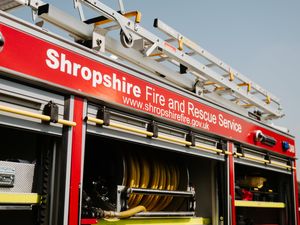Shropshire councillor joins national environmental group of council leaders
A Shropshire councillor has joined a group of rural council leaders in launching a network to promote the voice of the countryside in the climate change debate.

In a letter published by the Countryside Climate Network, a cross-party group of 21 councils from every region in England, the group warns that “rural communities are at the frontline of feeling the effects of climate change” and that “the countryside offers far more than a place to plant millions of trees to offset carbon emissions.”
Councillor Dean Carroll, portfolio holder for adult social care, public health and climate change on Shropshire Council, has supported the group, which aims to "ensure that the voice of rural knowledge and experience on climate action is listened to in Westminster”.
Its new chairman, the leader of Cambridgeshire Council warns that rural areas face “unfair barriers to decarbonise” including lower budgets and funding rules which favour urban concentrations but may have less overall carbon reduction. The group wants the Government’s delayed £100bn infrastructure fund[2] “to support the ambitions of rural areas and the opportunities our countryside and green infrastructure can provide”.
The new network has been established by UK100, a network of local leaders that campaigns on climate change. The 21 councils represent 14.3 million people in total, a quarter of the population (25%) and two fifths (41%) of England by area. The letter says that “the countryside offers more than a place to plant millions of trees to combat climate change. Rural communities have always been a great source of national progress and innovation.”
Group chairman, councillor Steve Count said: "From Cornwall to County Durham we have decided to take a stand. We’re frustrated that climate solutions and green recovery packages haven’t found the right balance, largely missing the rural voice.
“It can be hard to meet our sustainable ambitions when urban areas have no need to fund essential bus services to remote communities or invest in broadband because the market doesn’t reach isolated areas. These examples of typical rural disadvantages add up, combined with a funding gap in rural areas twice that of our urban counterparts, means our stretched resources are diminished making the challenge of funding sustainable solutions even harder.
“We need a green recovery that works for the two thirds that live outside the most urban cities and towns.
“However, rural communities face unfair barriers in trying to decarbonise – it is harder to attract funding for projects which don’t fit traditional cost benefit analyses, which favour urban concentrations yet may have less overall carbon reduction impact.”
Polly Billington, Director of UK100, said: “Climate change affects every area and every person, and rural towns and villages can be more vulnerable to the impacts, such as extreme weather. Countryside councils are well placed to tackle climate change and meet the needs and ambitions of their communities for economic recovery and better health and well being, with innovative solutions along with the democratic legitimacy to deliver lasting change.”




